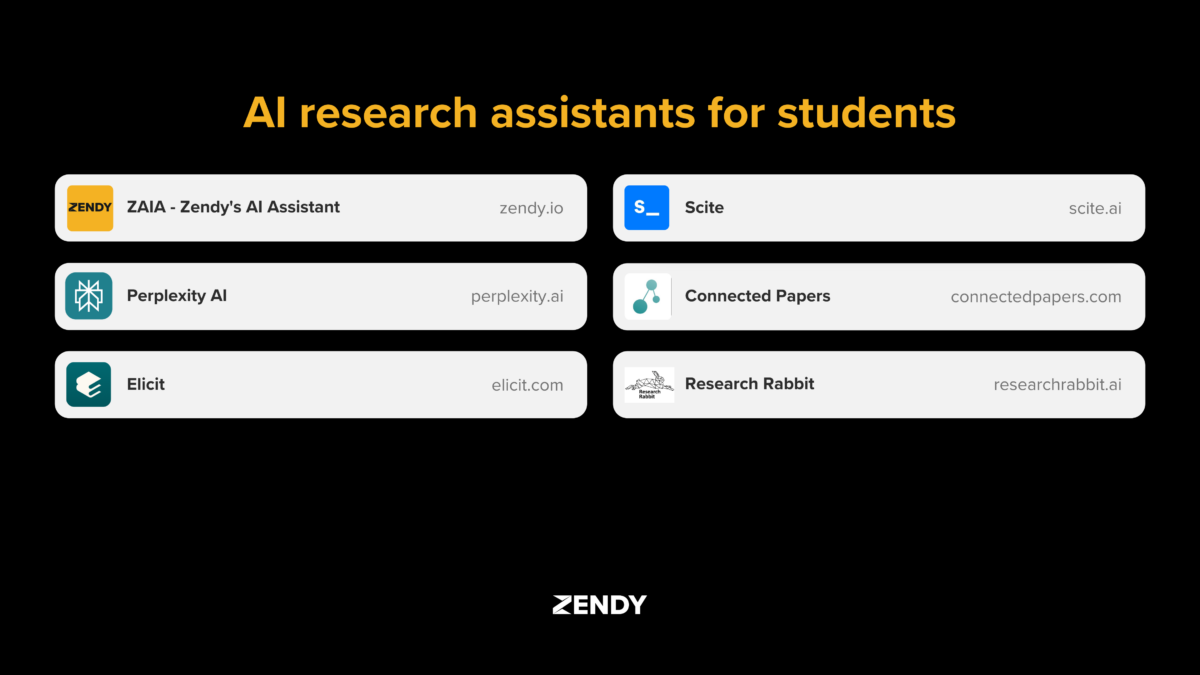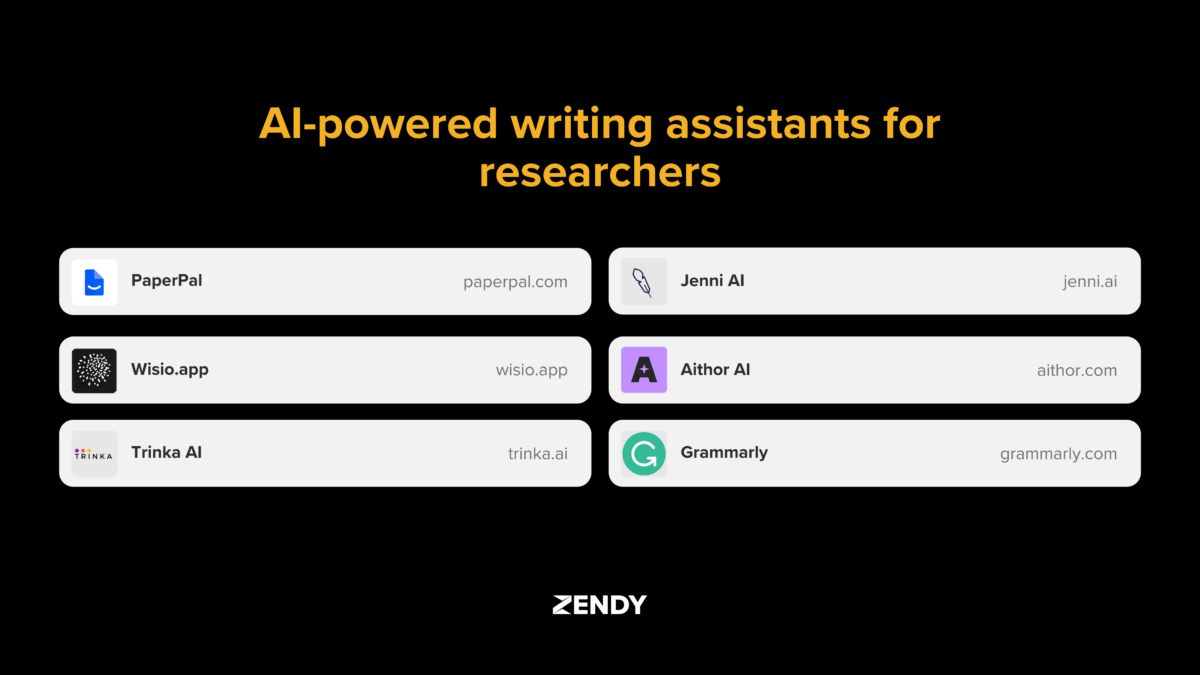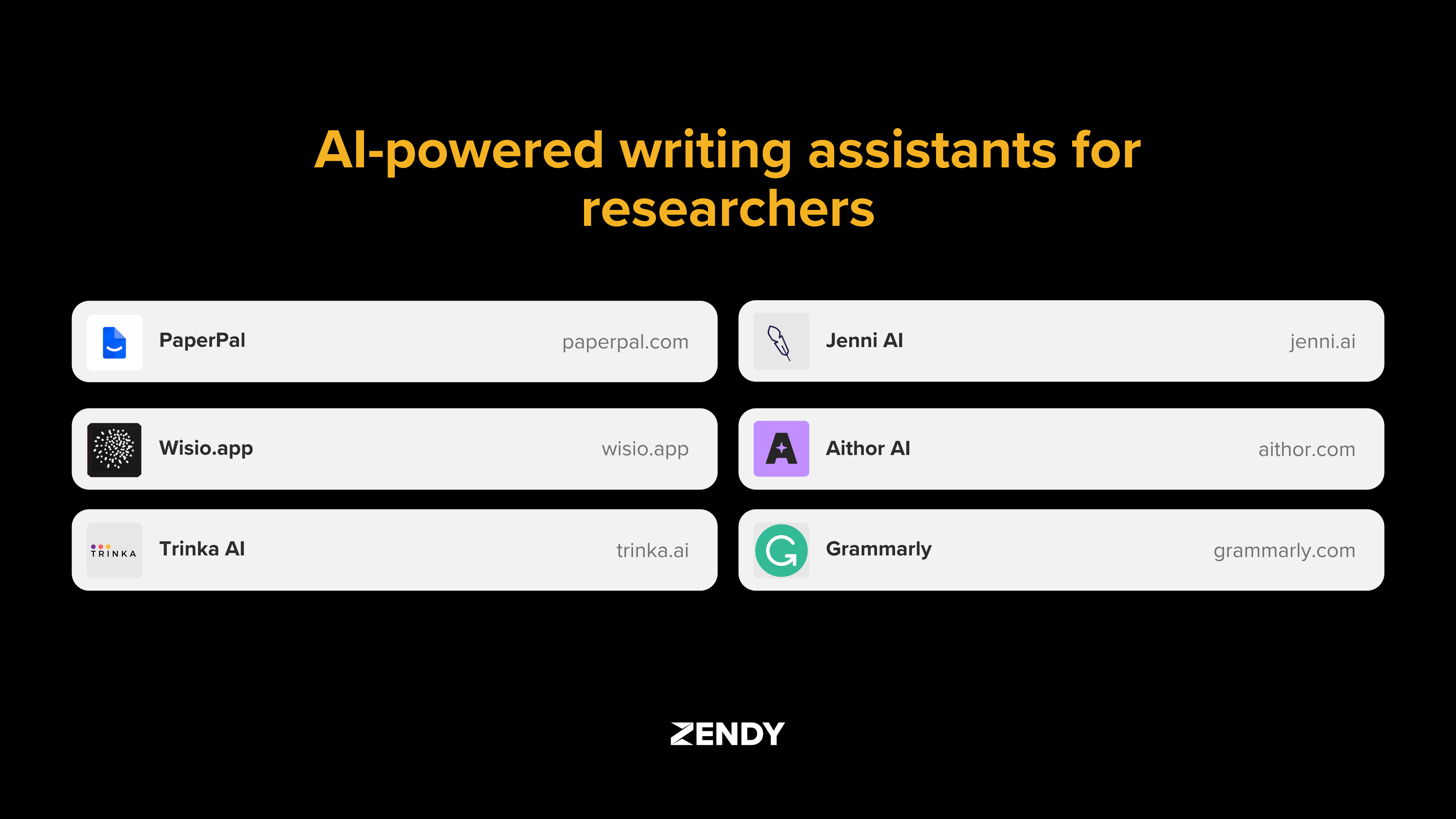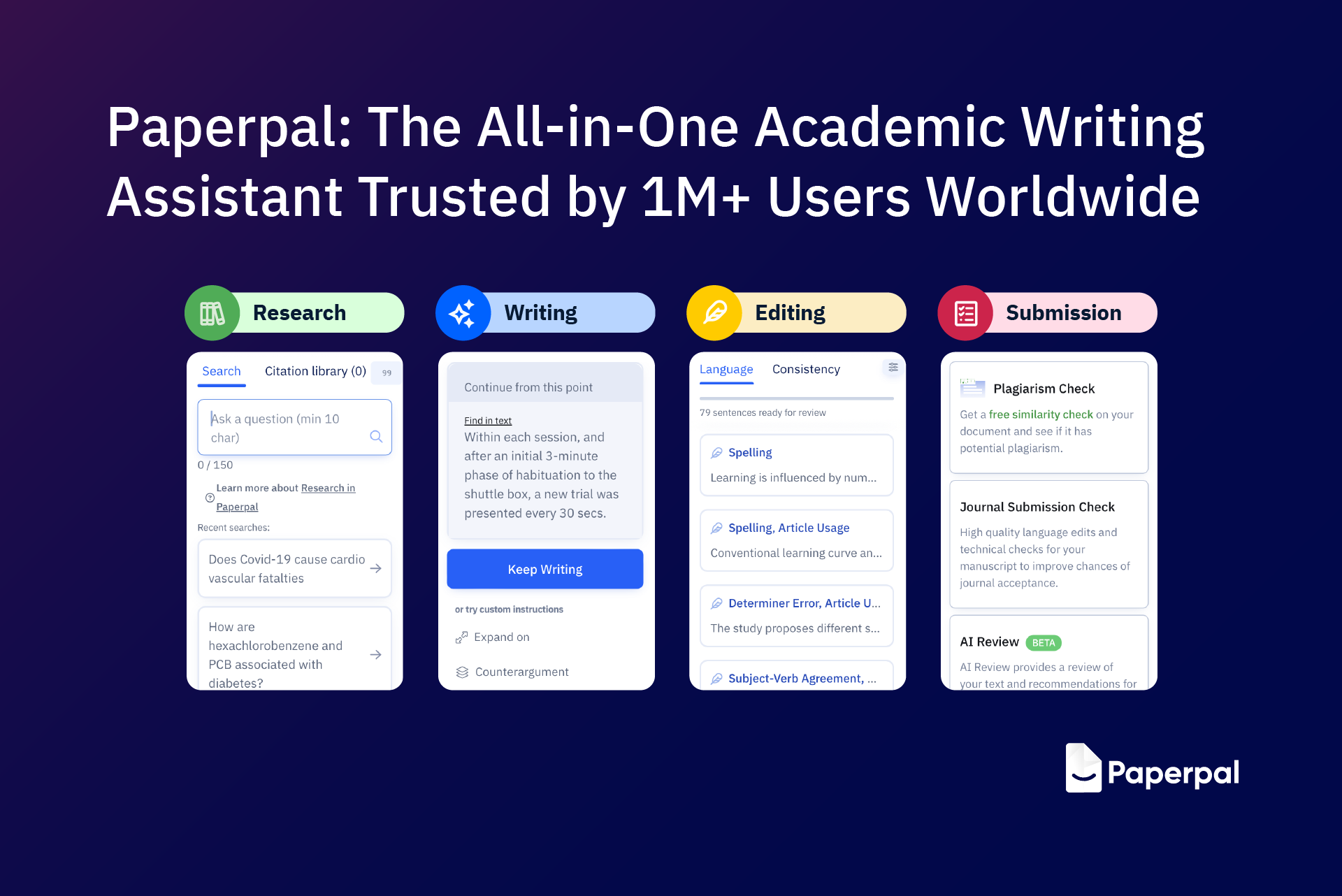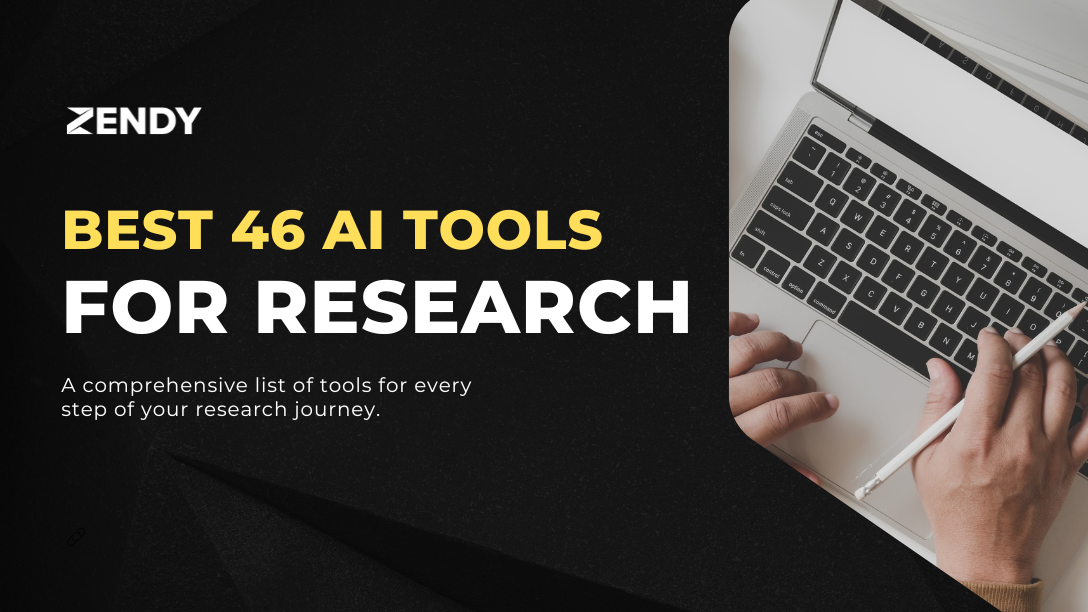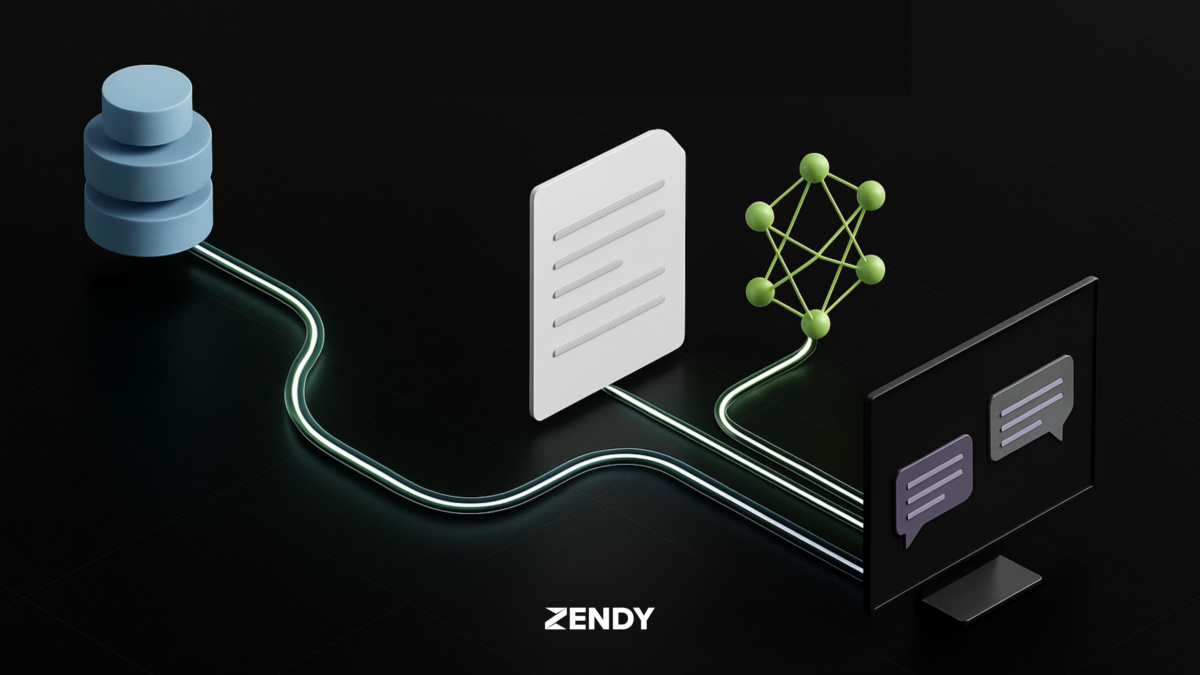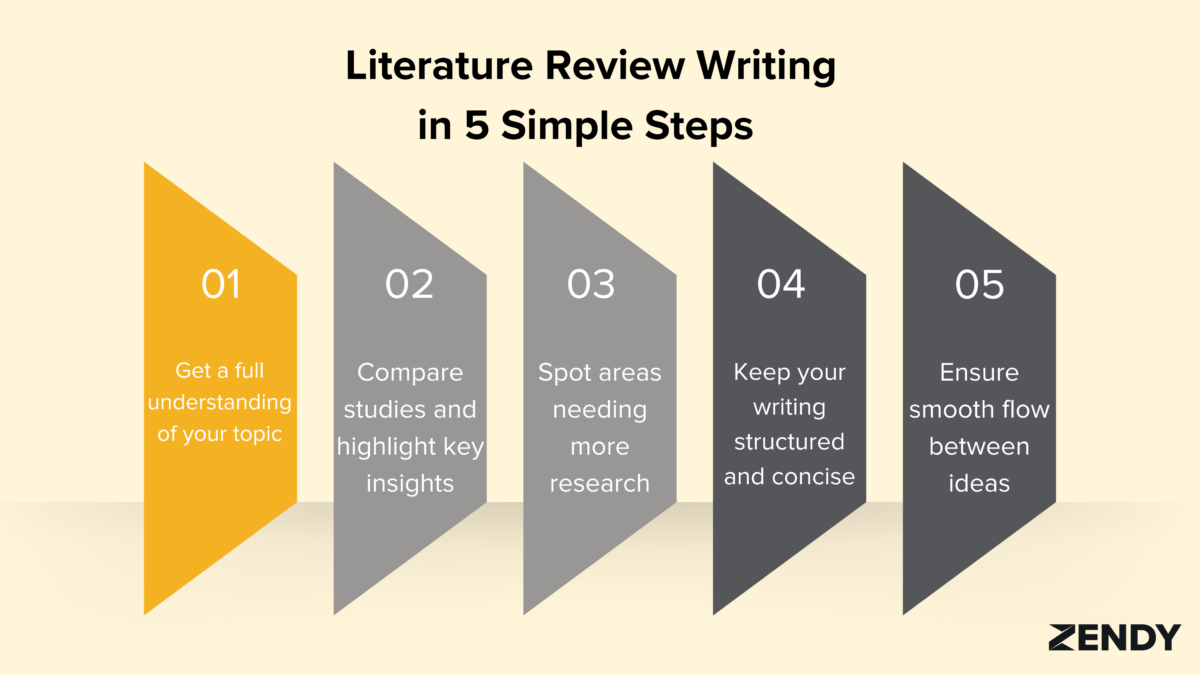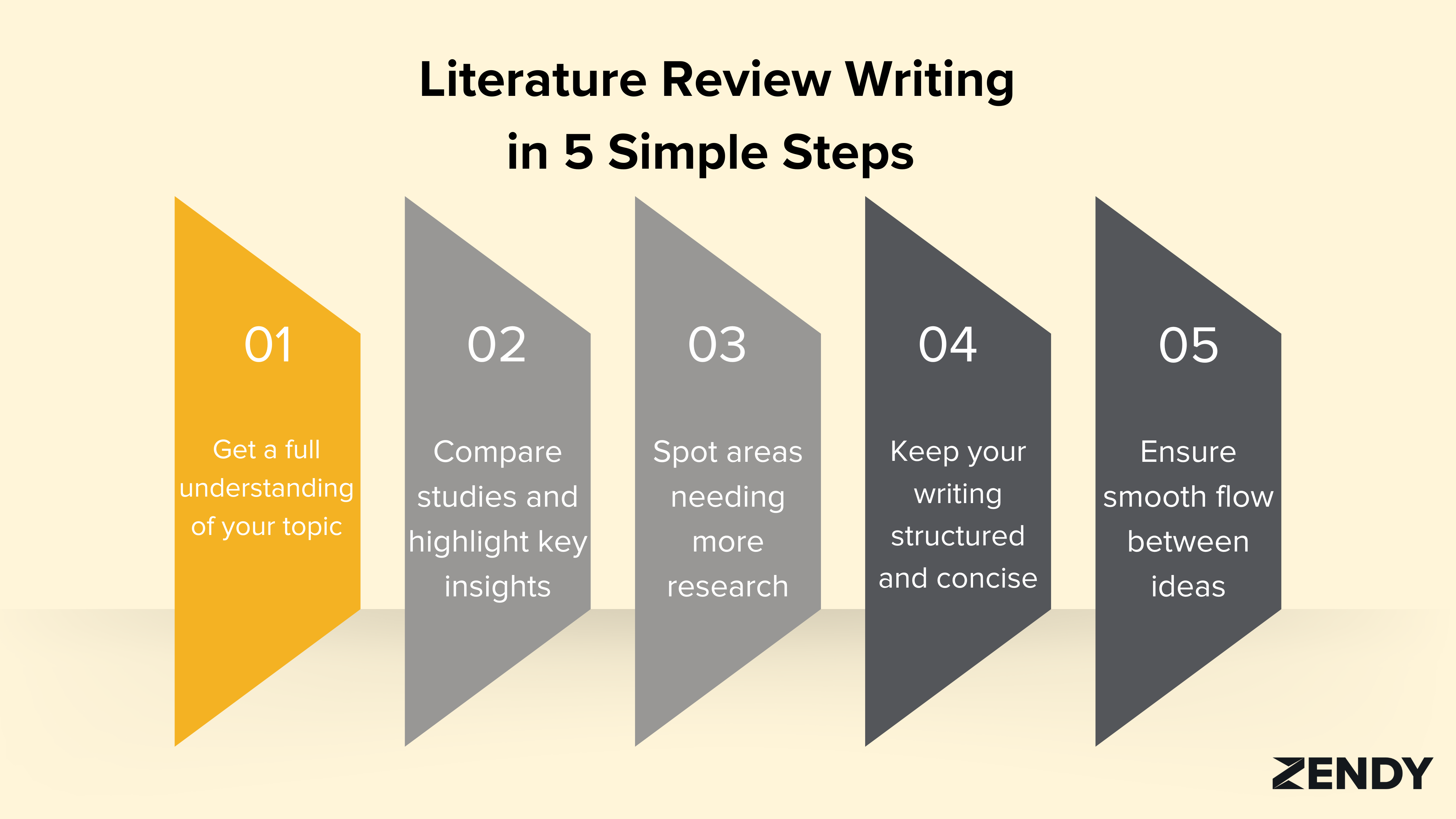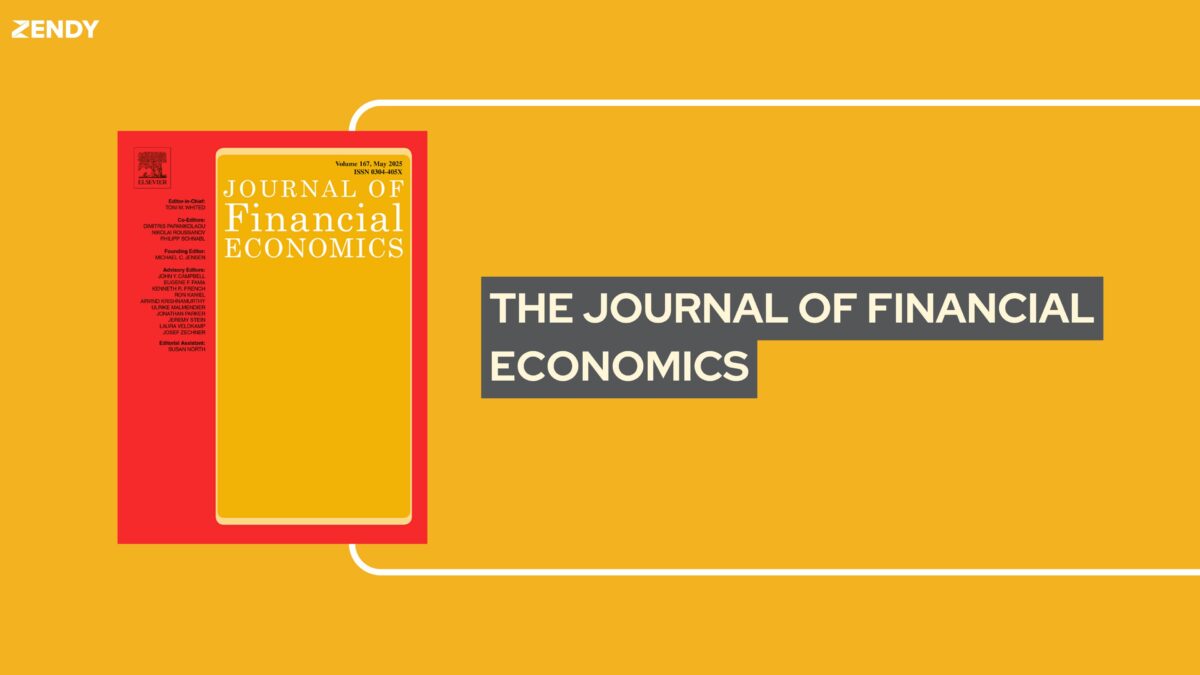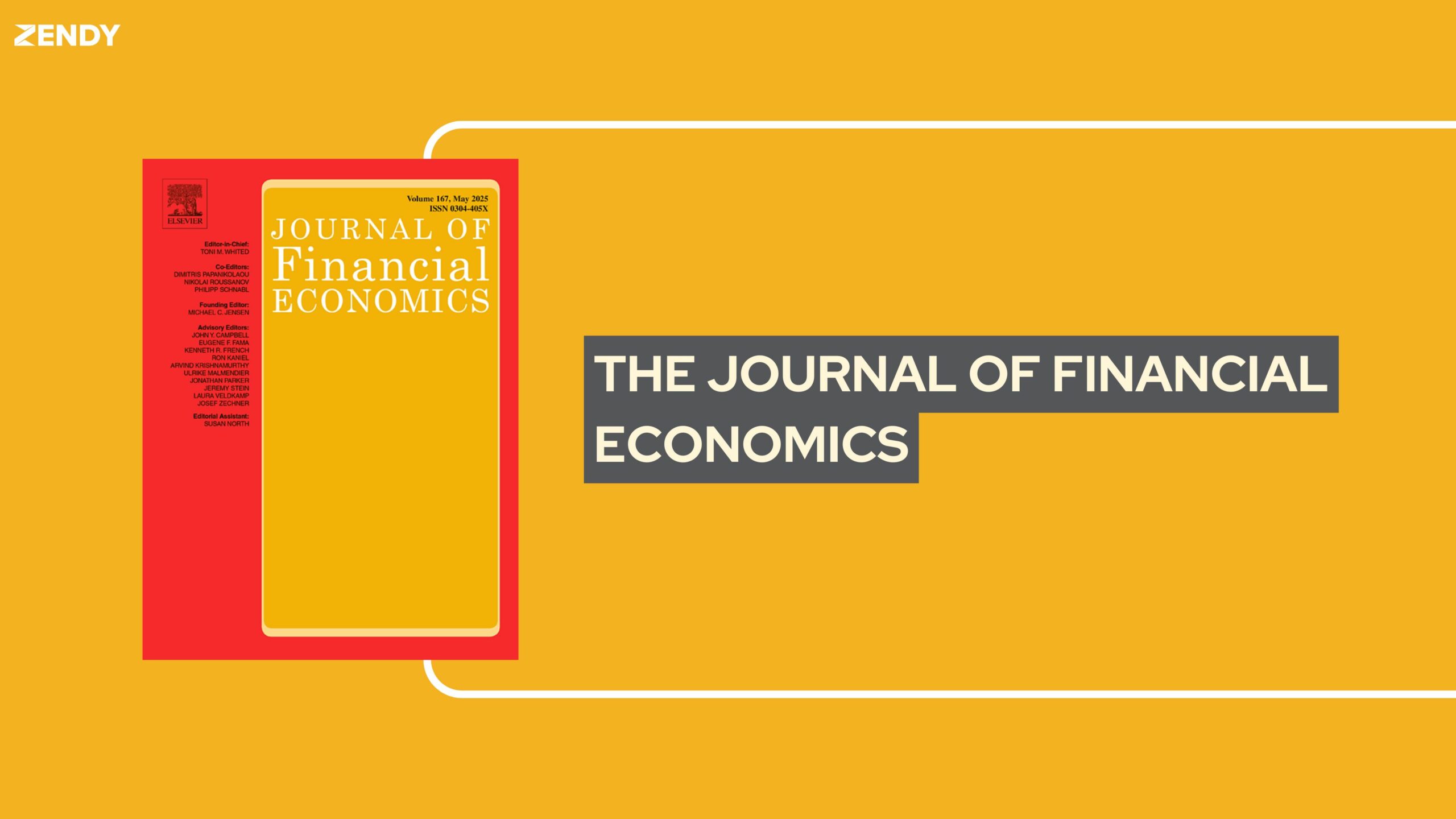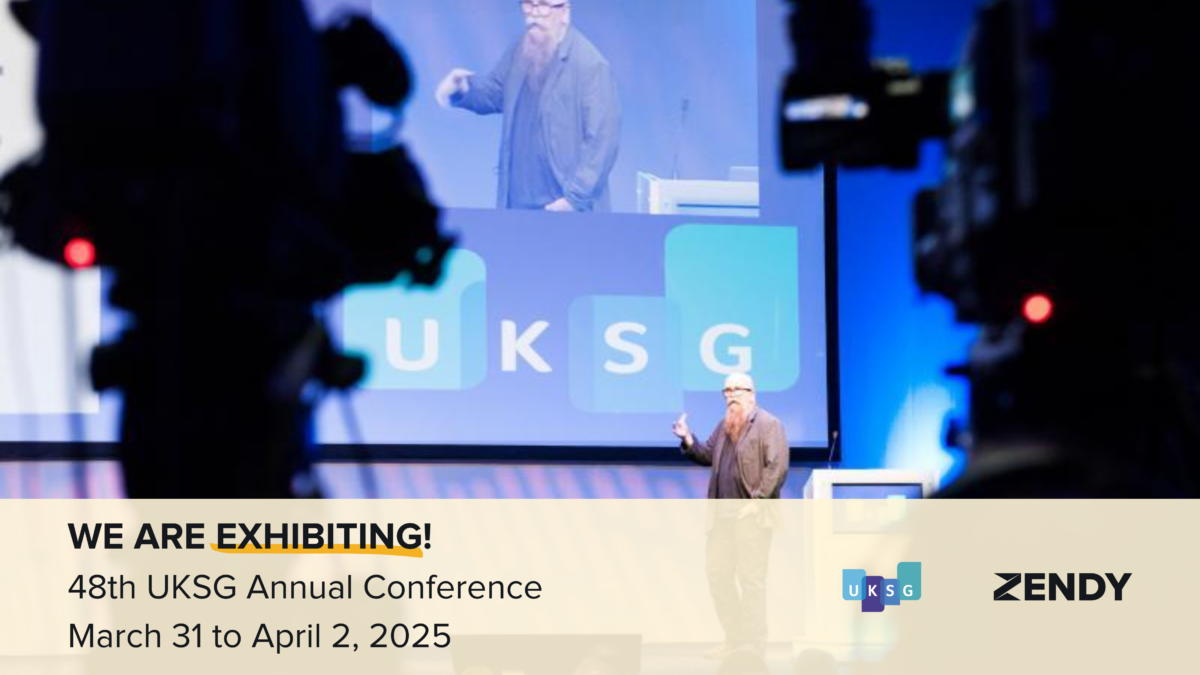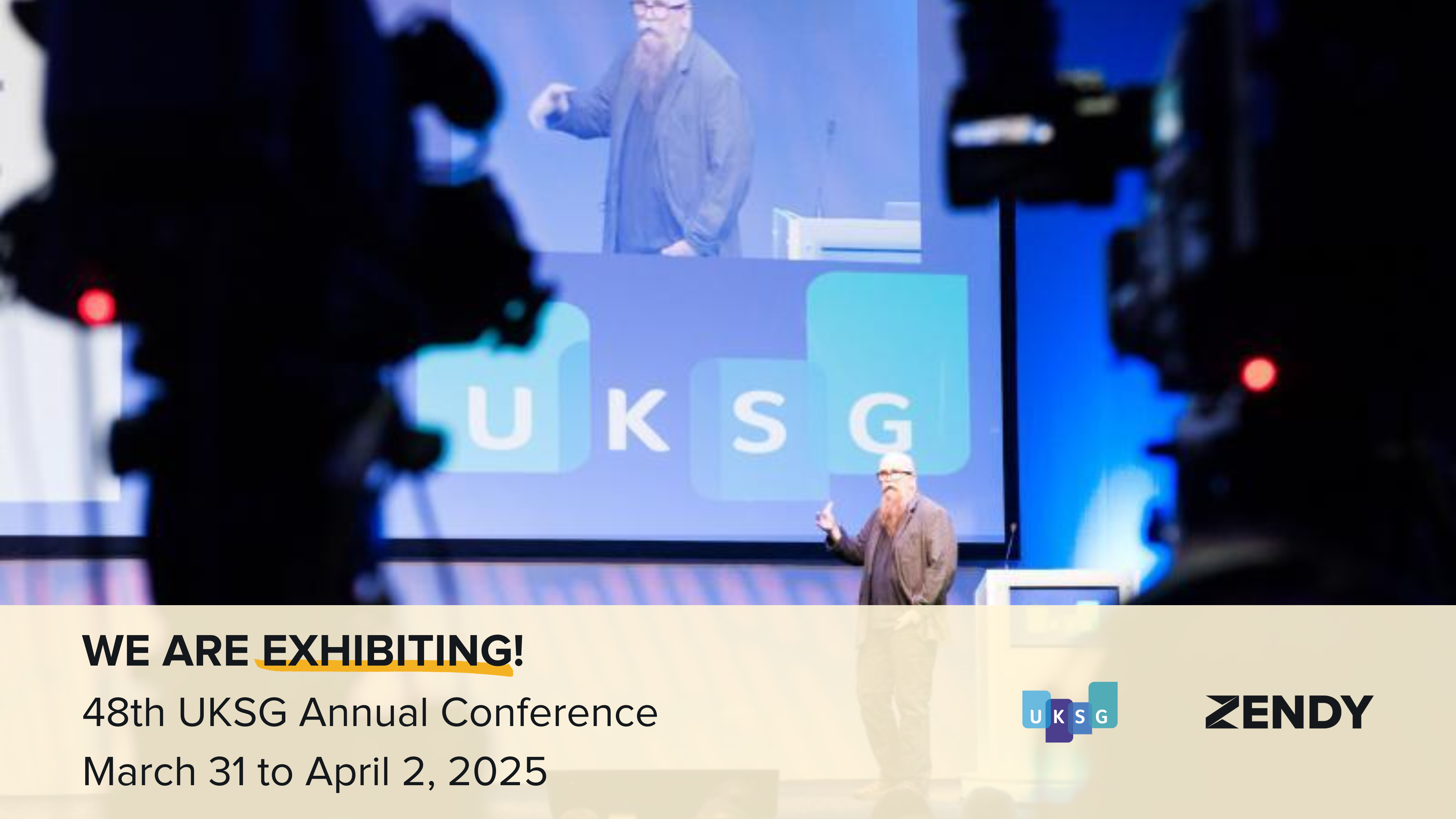AI tools for students are becoming a common part of how students find, read, and understand academic information. These tools are designed to help make research faster, more organised, and easier to manage. As more students rely on digital platforms for learning, AI plays a growing role in academic environments.
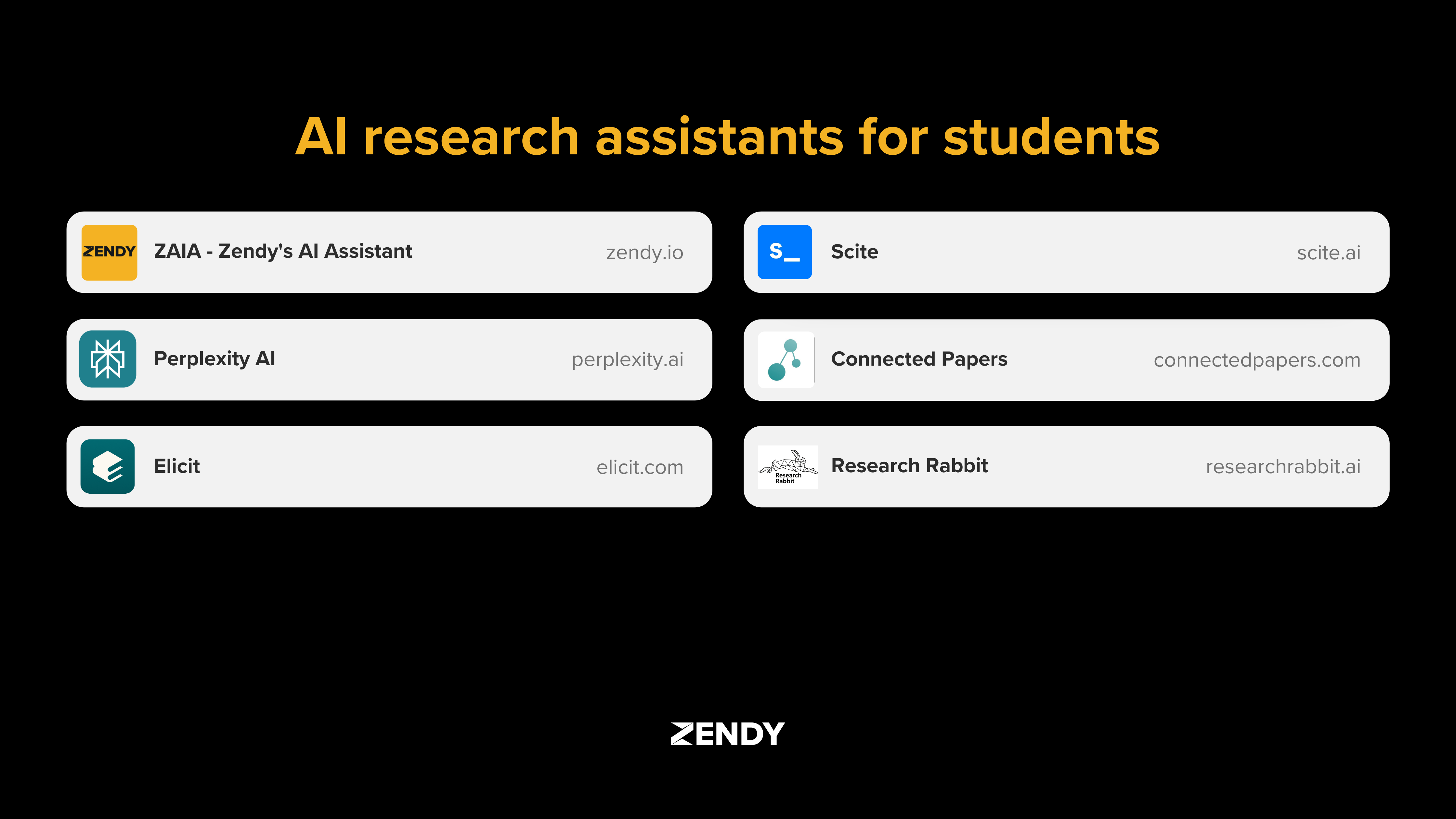
AI tools for students are a specific type of AI tool built to support academic work. They can search through large databases of scholarly content, find relevant papers, summarise complex texts, and help manage citations. Unlike general AI tools, they are trained to focus on academic literature and research tasks.
This article lists the top AI research assistants students are using in 2026, including tools like ZAIA, Elicit, Perplexity AI, Research Rabbit, Scite, ChatGPT, and Connected Papers. Each one serves a different purpose within the research process. The goal is to help students understand what these tools do and how they support academic research.
Why AI Research Assistants Are Essential for Students
Many students struggle with research challenges like limited access to academic journals, difficulty understanding complex language, and spending too much time searching for relevant papers. AI assistants address these issues by providing simplified summaries and streamlining the search process.
These tools are part of a growing trend in AI research for students. They work within AI research libraries to help students access quality academic content without needing special access or advanced research training.
6 Powerful AI Tools for Academic Success
ZAIA
ZAIA is an AI assistant integrated into Zendy’s academic library. It gives students access to millions of research articles across different subjects.
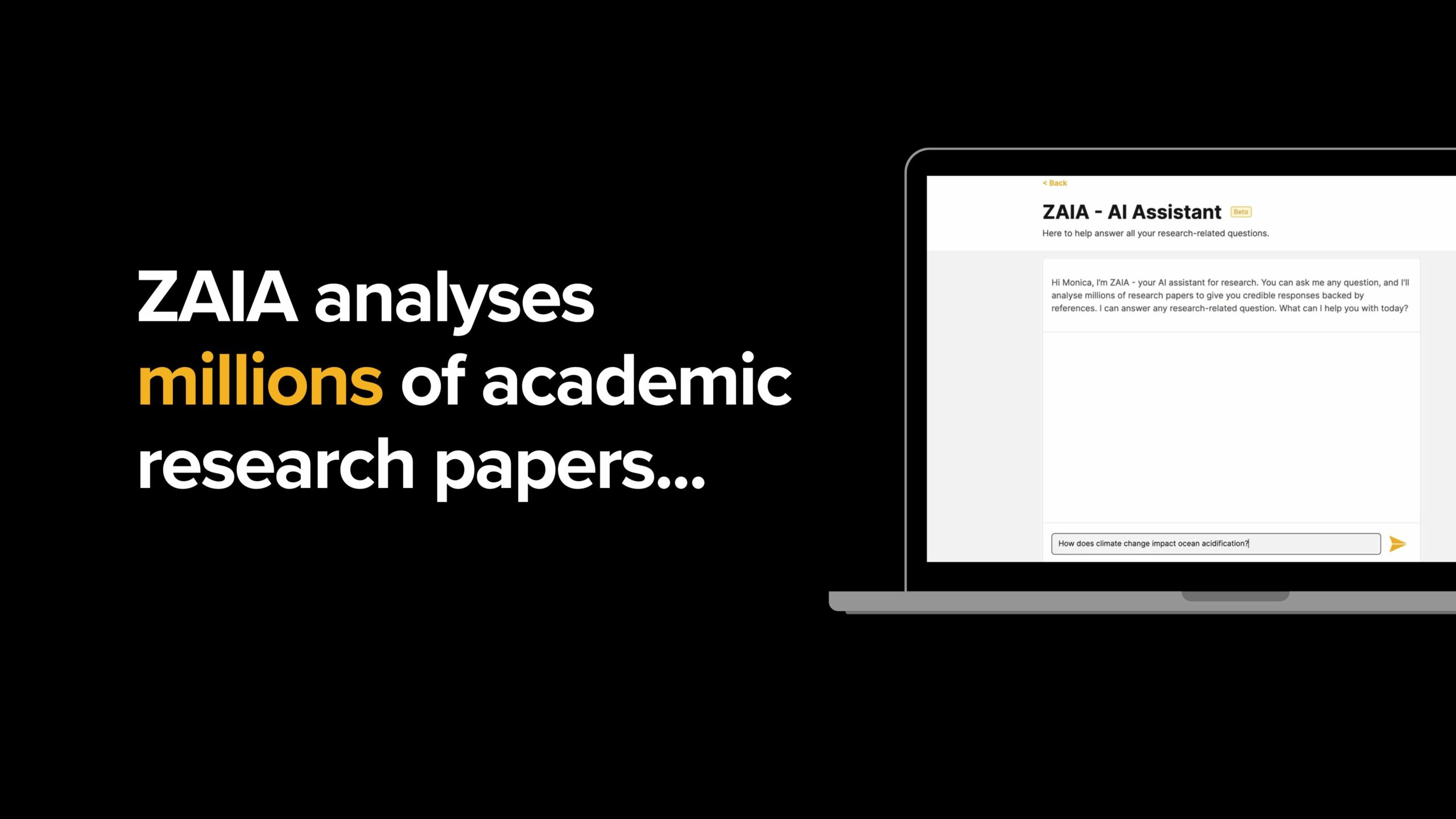
What makes ZAIA stand out is how it simplifies complex academic content:
1. Answers Research Questions
- You can ask ZAIA anything about a paper, topic, or concept.
- Example: “What is the main finding of this study?” or “Explain this in simpler terms.”
2. Summarises Academic Papers
- Provides quick, clear summaries of long or complex research articles.
- Tailors responses to students, researchers, or professionals.
3. Explains Technical Terms
- Breaks down jargon, statistics, and methodology into plain language.
4. Generates Insights from PDFs
- Upload a paper and ask ZAIA for:
- Key takeaways
- Strengths and weaknesses
- Implications of the research
5. Guides Literature Review
- Suggests related topics or authors.
- Helps formulate research questions.
A student working on a climate change project can upload journal articles and quickly extract the main findings without reading the entire paper. ZAIA connects to scholarly databases, providing access to both free and subscription-based academic content.
Its main strength is making literature reviews faster by delivering focused results with verified references.
Elicit
Elicit specialises in literature reviews. It searches academic databases to find papers related to specific research questions.

Here’s what Elicit best for:
1. Finds Relevant Papers from Semantic Scholar
- You can ask a research question (e.g. “What are the effects of mindfulness on anxiety?”), and Elicit returns papers that answer or relate to that question, even if they don’t use the exact same wording.
- It pulls from Semantic Scholar’s open-access database.
2. Extracts Key Information from Papers
- Elicit automatically pulls out:
- Abstracts
- Sample sizes
- Interventions
- Outcomes
- Methods
- This helps researchers quickly compare and understand multiple studies.
3. Supports Literature Review Workflows
- You can organise papers into a table.
- Customise what columns you want (e.g. population, findings, study design).
- Useful for identifying patterns, gaps, or summaries across studies.
4. Other Features:
- Brainstorm hypotheses and related questions
- Suggests relevant variables or search terms
- Summarises findings
Limitations:
- It only accesses open-access papers, mostly from Semantic Scholar.
- Less effective for very recent, niche, or paywalled research.
Elicit offers a free version with basic features and paid plans starting at $12/month. Its key advantage is evidence synthesis, comparing findings across multiple studies in an organised way.
Perplexity AI
Perplexity AI works like a smart search engine that answers questions with sources. Students can ask complex questions in everyday language instead of searching with keywords.
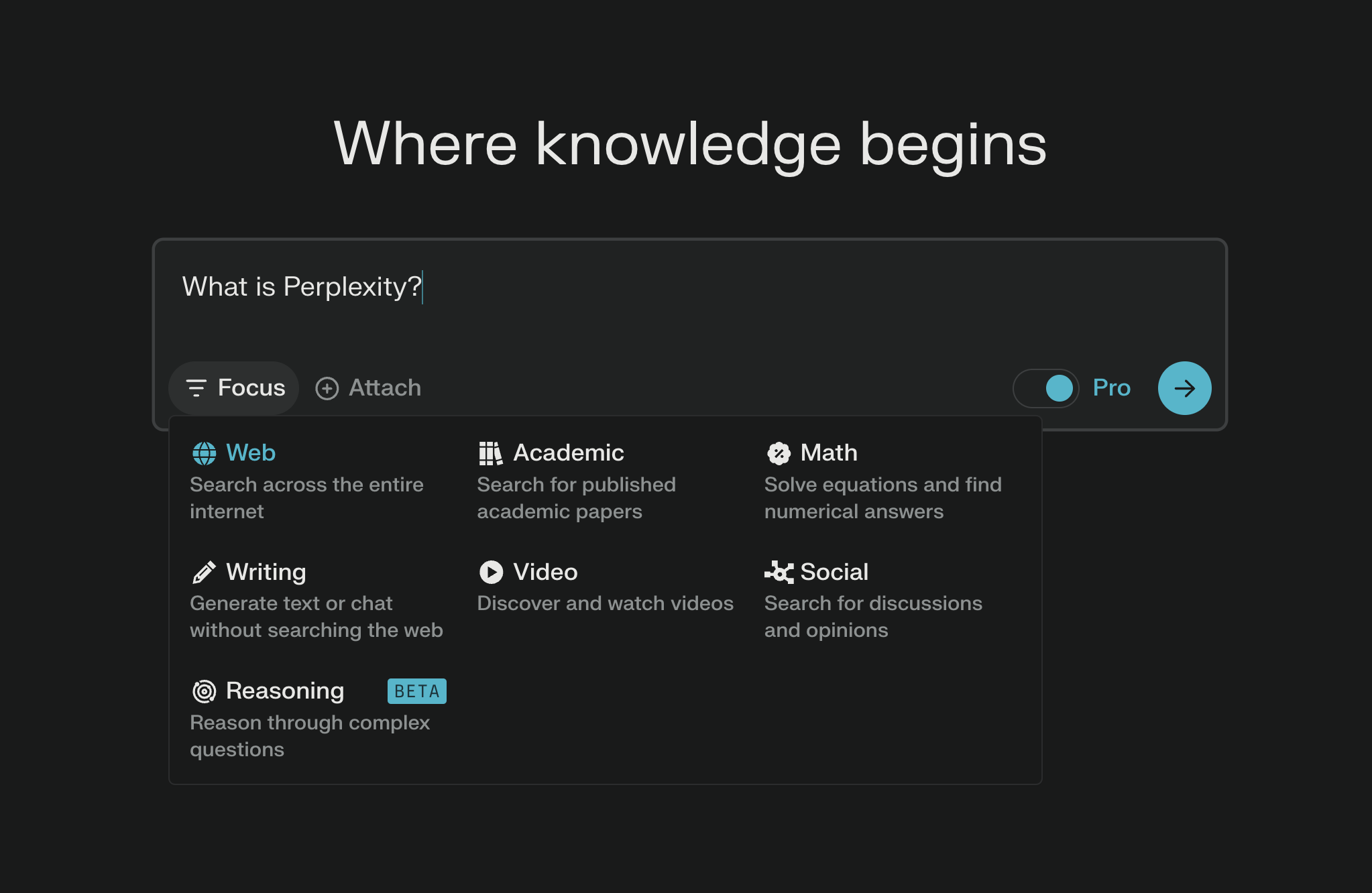
The tool shows citations alongside its answers, making it easy to check where information comes from. It’s available for free, with a Pro version offering additional features.
Perplexity AI excels at handling complicated questions in natural language, making it helpful for exploring new topics or getting quick, sourced answers for assignments.
Research Rabbit
Research Rabbit creates visual maps showing how academic papers connect to each other. This helps students see relationships between studies, authors, and topics.
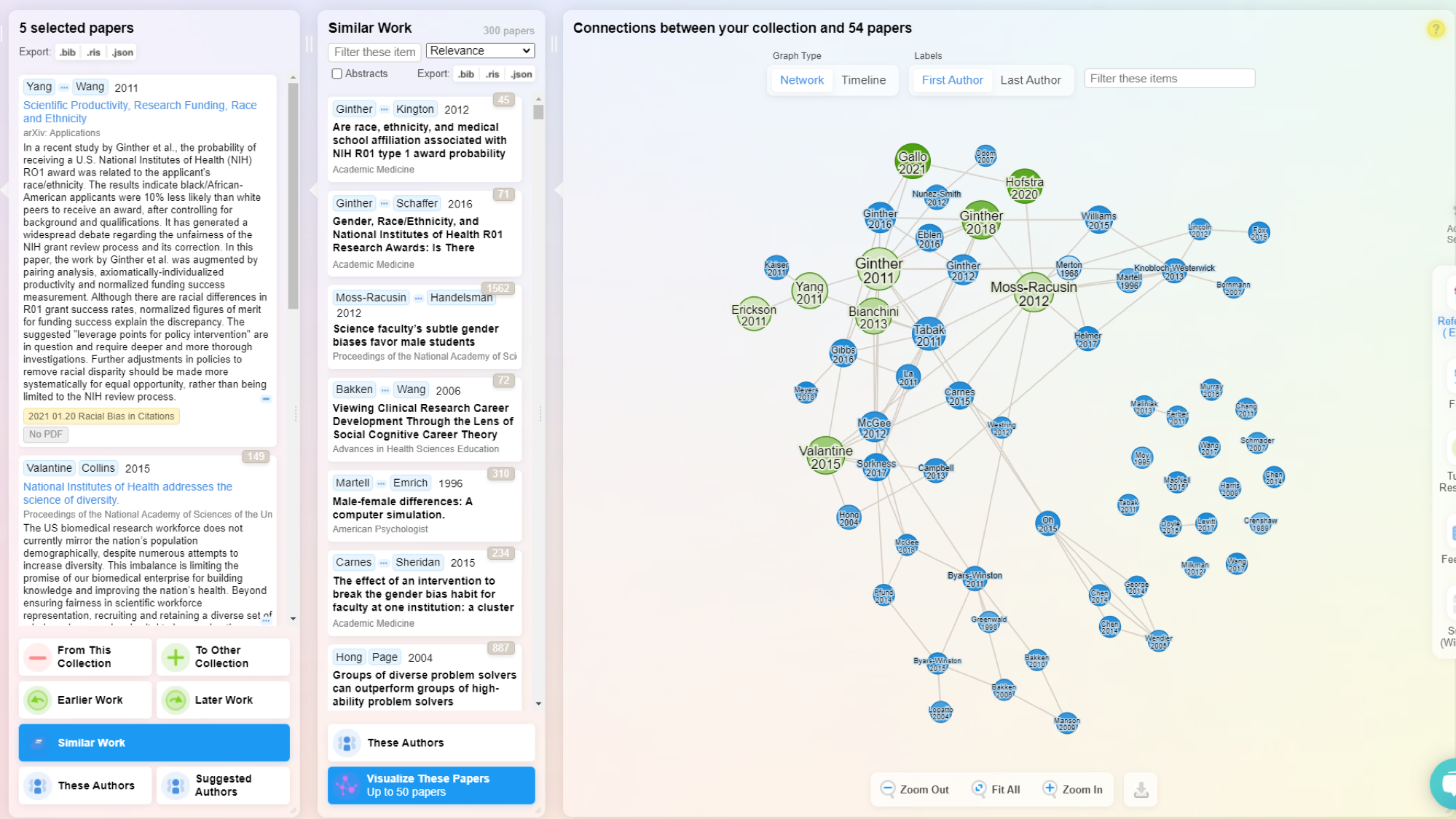
By entering one paper you already know about, Research Rabbit generates a map of related research. This visual approach helps discover papers you might miss with regular searches. Its core features are:
- AI-Powered Paper Discovery
- Suggests new papers based on your library and reading habits—using citation networks and topic similarity.
- Interactive Citation Maps
- Visualises relationships between papers (citing, cited, similar), and co-author networks in node‑and‑edge maps.
- Personalised Feeds & Alerts
- Delivers updates when new papers related to your collections or authors are published, without spam.
- Collaborative Libraries
- Enables sharing collections, commenting, and collaborating, supporting teamwork and peer exploration.
- Reference Manager Integration
- Syncs with Zotero, Mendeley, etc., making it easy to import/export your research
The tool also offers personalised paper recommendations and allows sharing collections with classmates or professors. It’s especially useful for understanding how academic conversations have developed over time.
Scite
Scite analyses how research papers are cited by others. This helps students evaluate a paper’s credibility by seeing how the academic community has responded to it. For example, a paper with many contrasting citations might have contested findings.
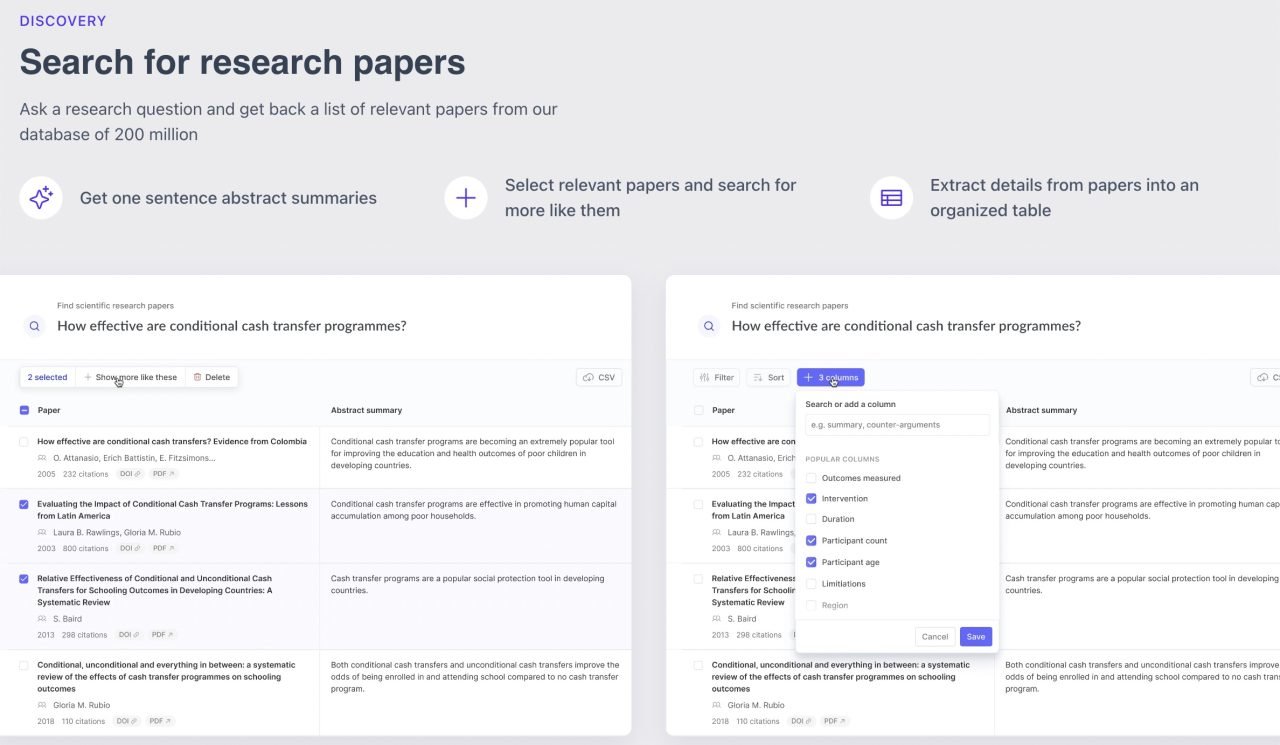
Scite features:
1. Smart Citations
- Scite shows how a paper is cited, not just that it’s cited.
- It categorises citations into:
- Supporting (agreeing with the findings)
- Contrasting (disagreeing with the findings)
- Mentioning (neutral reference)
- This gives a clearer picture of a paper’s credibility and influence.
2. Citation Statements in Context
- You can see the actual sentence in which another paper cited the one you’re reading, making it easier to understand how and why it was cited.
3. Research Discovery
- Scite helps users find high-quality, debated, or under-reviewed papers by showing citation patterns.
- You can also explore citation networks and related works.
4. Scite Assistant
- A chatbot-style AI that helps you ask questions and discover relevant research based on Scite’s citation database.
5. Research Dashboards & Reports
- Used by universities and institutions to analyse research impact, identify experts, or track fields of study.
Scite is particularly valuable for checking if a source is reliable before using it in an assignment. Students can access it through individual or school licenses.
Connected Papers
Connected Papers creates visual graphs showing relationships between research papers. By entering one paper, students get a map of related studies.

This tool helps find:
- Visual Graph Mapping
- Builds an interactive graph where each node represents a paper.
- Node size reflects citation count; colour shading shows publication year
- Spatial layout shows conceptual similarity—not direct citations—clustered accordingly
- Prior & Derivative Works
- Multi‑Origin Graphs
- Export Options
- Export bibliographic data (e.g., BibTeX) directly for reference managers
Connected Papers is free to use, but doesn’t cover every academic journal. Its strength is helping students understand the structure and history of a research topic through visual connections.
How to Choose the Right AI Assistant for Your Needs
Different AI research assistants work better for specific tasks. Here’s a simple guide to help you pick the right tool:
| Task | Best Tools | Why |
| Literature review | ZAIA, Elicit | Search across academic sources with summaries |
| Quick answers | Perplexity AI | Conversational interface for fast results |
| Checking source reliability | Scite | Shows how papers are cited by others |
| Finding related papers | Research Rabbit, Connected Papers | Visual maps of connected research |
Your budget also matters when choosing a tool. Research Rabbit and Connected Papers are completely free. Perplexity AI offers free versions with premium options. ZAIA, Elicit, and Scite have both free features and paid plans with more capabilities.
For students with limited funds, combining free tools can work well. For example, use Connected Papers to discover papers, then use ZAIA to summarise them.
Addressing Credibility and Source Reliability
When using AI research assistants, checking the reliability of information is important. Not all AI tools verify their sources equally well.
To check AI-generated information:
- Look for the original source citation
- Verify the source exists in academic databases
- Confirm the AI accurately represented the source
Some tools focus more on peer-reviewed content than others. ZAIA connects directly to academic databases with verified research. Elicit provides supporting quotes from papers. Scite shows how papers are cited in other academic work.
For academic writing, it’s essential to verify any citations an AI provides. Check that the publication exists, the authors are real, and the information matches what the AI claimed. This helps maintain academic integrity while still benefiting from AI assistance.
Time-Saving Strategies With AI Research
AI research assistants can significantly reduce the time spent on academic tasks. Here are some effective combinations of tools:
For a literature review, try this workflow:
- Use Connected Papers to identify key papers in your field
- Import those papers into Elicit to extract main findings
- Use ZAIA to summarise complex papers you need to understand deeply
This approach can reduce initial research time by focusing your reading on the most relevant materials.
Semantic search, used in tools like ZAIA, finds results based on meaning rather than exact keywords. This helps find relevant papers even when they use different terminology. Traditional keyword search only finds exact matches, often missing important related research.
AI summarisation tools extract the main points from research papers, allowing you to review more papers in less time. This is especially helpful when deciding which papers to read in full.
Integrating AI Tools Into Your Research Process
AI research assistants work alongside traditional research methods, they don’t replace them. These tools help find and organise information, but students still need to read key papers and form their own understanding of the topic.
Many AI tools connect with citation managers like Zotero, EndNote, or Mendeley. This allows seamless transfer of references and citations between systems, keeping your bibliography organised.
For group projects, some tools support collaborative research. Students can share collections of papers, AI-generated summaries, and notes with team members. This helps maintain consistent understanding across the group.
A simple way to incorporate AI into your research:
- Define your research question
- Use an AI tool to find relevant papers
- Summarise key papers using AI features
- Export citations to your citation manager
- Organise findings by themes or relevance
Empower Your Research Journey
AI research assistants help students complete academic work more efficiently. They summarise papers, find relevant sources, organise citations, and show connections between studies, reducing time spent on repetitive tasks.
These tools support but don’t replace critical thinking. Students still evaluate sources, check accuracy, and form arguments based on evidence. The AI handles information processing, while students focus on understanding and analysis.
The field of AI in academic research continues to develop. Future improvements may include better real-time collaboration, analysis of content in multiple languages, and more personalised recommendations based on your research interests.
Zendy offers a comprehensive research platform that combines AI tools with access to a large academic content library. Its features include summarisation, keyphrase highlighting, and citation organisation, all designed to make research more accessible and efficient.
FAQs About AI Research Assistants
Which AI research assistants work well for students with limited budgets?
Research Rabbit and Connected Papers are completely free. Perplexity AI offers a robust free version with its core features. Zendy provides affordable access to both free and subscription-based academic content through its platform.
How do these AI tools handle different academic subjects?
Coverage varies by tool. Elicit works well for science and medicine, while Connected Papers and Research Rabbit cover most academic fields. Some tools may be less effective for humanities or theoretical subjects where research is more conceptual.
Can AI research assistants access subscription-based academic journals?
Most free AI tools only search publicly available sources. Zendy provides access to subscription-based academic literature at a lower cost through partnerships with publishers, making paywalled content more accessible to students.
Are citations from AI research assistants always accurate?
No. Citations from AI tools should always be verified. Some tools may generate incorrect references or misinterpret sources. It’s important to check citations against original sources or academic databases before including them in your work.
